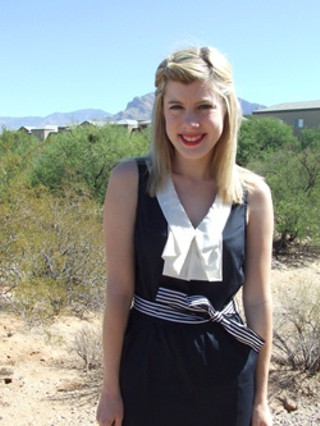Being privy to the dark and twisted bureaucratic methods of communication at Pima Community College has its perks. I have found myself saying recently, "Damn, The New York Times is now getting a taste of my daily strife."
As a reporter for the Aztec Press, PCC's biweekly student newspaper, there never seems to be any need for information past what the college's public-relations department has to offer—at least that's what the public-relations department thinks.
I have been on staff for the last year and a half at the Aztec Press. The stonewalling that the national media has had to deal with since the events of Jan. 8 is all too familiar to Aztec Press staff members. While this may be something for Press staffers to feel special about, it is a pattern that has long been in need of change.
The attitude of the public-relations department and the chancellor himself makes it appear as if paranoia runs rampant at the top. Is it necessary for a Pima spokesperson to instruct a counselor to not offer his informed opinion on remedial education with an Aztec Press reporter? Or to refer reporters to an outside public-relations team, hired by the college after Jan. 8—a team that does not seem to be very skilled at crisis management?
At the school, officials find it necessary to demand that questions be submitted for review via e-mail before an interview with the chancellor or any other PCC official is granted. Even after jumping through these hoops, the e-mail is often instead returned with responses by Rachelle Howell, PCC's spokeswoman, instead of being directed to the more-qualified individual for whom the interview request was intended.
Paul Schwalbach, PCC's marketing and public-relations manager, is a former newspaper man, yet he insists on sitting in on interviews—intimidating both the interviewee and the reporter.
The ludicrous methods PCC officials use to communicate with the media are, at the very least, inconvenient, and at the worst, damaging and misrepresenting. No information passed through a middleman could enlighten the public better than information gained directly from a knowledgeable source. And it certainly doesn't reflect the transparency that Pima students and Tucsonans deserve from an institution funded by their money.
For an example of the administration's paranoia, look no further than the fight that PCC put up to withhold e-mail records from The Arizona Republic.
The records obtained by the Republic—obtained only after the Phoenix newspaper filed suit—included little, if anything, that showed Pima officials did wrong in their dealings with alleged Jan. 8 shooter and former PCC student Jared Loughner. Yet PCC's grip on the public records remained tight, until a judge deemed their reasons unfounded.
To have to tear away information, as if you were trying to take a toy away from a child, is unacceptable for a public institution funded in part by taxpayers. In fact, it's borderline crazy.
After intense media scrutiny following the shooting and Jared Loughner's subsequent indictment, Chancellor Roy Flores announced he would begin personally supervising PCC's Department of Public Safety. "Receiving information second- or third-hand in this critical area will not suffice," he said in an e-mail to college employees.
While his micromanagement efforts may be misguided, I heartily agree with that statement.











